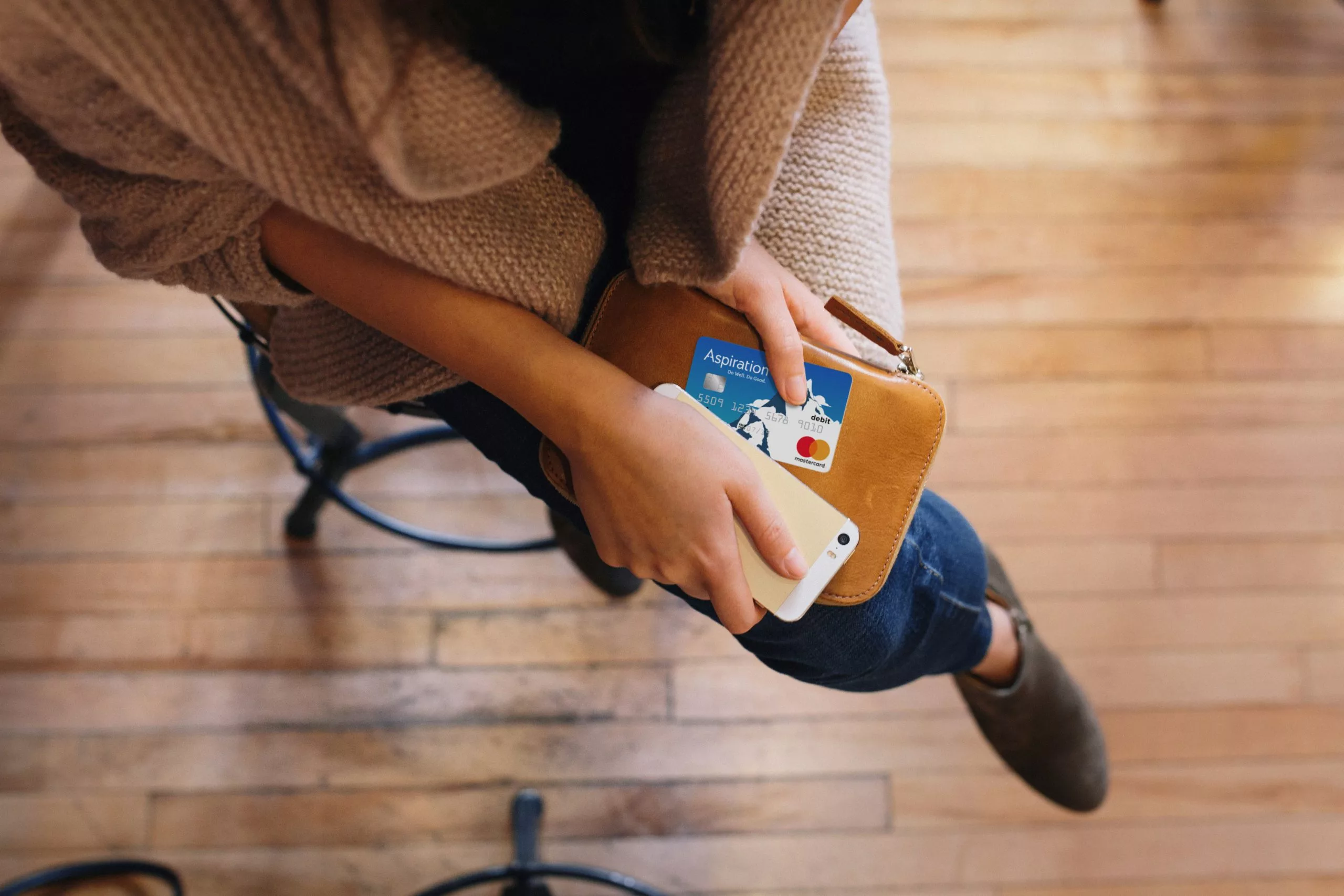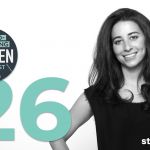We’re all likely aware of the highly publicized successes in the social enterprise movement, from Patagonia’s mission to save our planet to the one-for-one model of TOMS shoes. These pioneers have tilled the ground for a new class of equally exciting conscious companies that are making bold change in the name of good.
The companies presented here couldn’t be more different. All Good’s natural skincare products help save coral reefs. Everytable provides healthy, affordable food to low-income communities. Aspiration disrupts the world of Wall Street, while Saalt strives to stomp out the stigma surrounding women’s period health. Let’s take a closer look at these social enterprise success stories.
All Good
Caroline Duell is an accidental entrepreneur who got into business by, well, taking care of accidents. Her company, All Good Products, started in 1997 when Duell, who worked in emergency care on an ambulance, created All Good Goop, a homemade balm that harnessed nature’s power to heal. It did an amazing job of treating cuts, scrapes, and skin ailments for her rock-climbing friends and others with active outdoor lifestyles. She gave it away for years before deciding there was an actual business in this salve and other formulations she’d developed.
Duell’s not working accidentally anymore. Based in Morro Bay, California, All Good now offers a line of body care products including lip balms, lotions, and a line of reef-friendly sunscreens born of a desire to prevent the destruction of ocean reefs from chemically-laden sunscreens. All Good proactively supports global legislation to ban the sale of products containing known toxic chemicals, including successful legislation last year to ban these products in Key West, Florida, and the state of Hawaii.
Last year, All Good’s sales jumped 100 percent as its expanding customer base rallied around the quality of its all-natural products, its oceanic advocacy, and its business model. The company also gained Costco and Sprouts as key new customers.
All Good has some strong differentiators: a warehouse that is run completely by women and products that are vertically integrated from seed to shelf, which provides an unparalleled level of transparency and trust for customers. The company recently celebrated its 10th anniversary as a Certified B Corporation and gained the community’s Best for the World Overall honors. It is also a member of 1% for the Planet, whose members contribute 1 percent of its sales to nonprofit environmental organizations.
“All Good stands on the edge of a beautiful movement: business being used as a force for good in the world,” Duell says. “We are dedicated to using science and regenerative agriculture to drive quality product innovation, human kindness as the core of company culture, and fun as thread that binds.”
Everytable
Wall Street expats Sam Polk and David Foster started Everytable to make good food available to everyone. Their particular challenge was to bring healthy cuisine to food deserts — urban areas where it’s hard to purchase affordable, healthy food.
They focused on convenience — after a long day of work, parents in low-income neighborhoods need easy, ready-to go meals that are healthy. And they developed a creative business model that provides these meals at affordable prices.
Here’s how the Los Angeles company’s model works: Prices for its meals are set according to the neighborhoods in which they are served. For instance, Everytable’s best-selling menu item, Trap Curry Chicken, is offered in low-income neighborhoods, such as Compton, for $5. The same meal in upscale Santa Monica, priced to be competitive with other healthy fast-food outlets there, fetches $8.
Its “Pay it Forward” program enables people to purchase a meal for someone in need, and last year nearly 5,000 free meals found their way to hungry bellies through the generosity of the customers.
Everytable, which is a public benefit corporation, uses a hub-and-spoke distribution model to help keep costs down. The meals, which are made from scratch using healthy ingredients, are prepared in a central commissary, which eliminates the need for onsite kitchens. This reduces the size of their retail footprint, saving on both lease and labor costs (no kitchens, no cooks).
The company has started a growing subscription business and also launched SmartFridge, a tech-enabled product that allows organizations to provide their employees with access to fresh, healthy food options at work.
Everytable recently raised more than $10 million in growth capital, including its first program-related investment from the Kellogg Foundation. The company anticipates that it will sell its millionth meal this summer and has set its sights on big-time scale: 10,000 to 30,000 locations, seeking to build out a franchise model targeted toward entrepreneurs of color from underserved communities.
“We’re really excited about that lever of potentially using Everytable’s food to push against the structural inequality, but also our business model to create true economic empowerment and equity ownership over the long term,” Polk says.
Aspiration
When Aspiration launched in 2015, its goal was to upend Wall Street and the traditional financial services industry by offering people a company and products with a socially conscious bent—and letting people pay what they wanted for the service, even if what they paid was nothing.
What may have been a head-scratcher to many at the time is turning out to be the beginning of a movement and a very smart idea. Aspiration has signed up more than a million Americans to its platform for ethical, sustainable spending and saving. This mass migration of money has moved hundreds of millions of dollars out of banks that use customer deposits to fund fossil fuel projects.
The Marina Del Rey, California, company makes its services accessible to nearly anyone, as you can start an investment account by depositing as little as $10. Here’s the aforementioned kicker — you get to choose the fee you pay, from nothing to 2 percent of your investment.
Aspiration, which is a Certified B Corporation, also embraces the spirit of giving with its Dimes Worth of Difference commitment. The company donates 10 percent of its revenue to nonprofits working to expand economic opportunities for struggling Americans. Its innovative AIM score — Aspiration Impact Measurement — lets customers track their spending and personal impact by rating companies for the way they treat people and the environment.
The company had its biggest month of customer growth this year when it debuted its new Aspiration Spend and Save Account, an FDIC-insured, fossil-free cash-management account that pays 2 percent interest and offers cash-back rewards on spending at businesses with a conscience. The company also received a bump when actor Leonardo DiCaprio tweeted about Aspiration to his 19 million followers. (DiCaprio is also an investor in the company.)
“We’ve come a long way but are still at the very beginning of our journey,” says co-founder and CEO Andrei Cherny. “We’ll know we’re a success when the traditional banks change how they treat their customers and the world around them — and we’re not there yet.”
Saalt
Saalt has been in business a little over a year — though its success thus far portends big things for a startup that’s tackling societal taboos in the feminine hygiene industry.
Started by co-founders Amber Fawson and Cherie Hoeger in Boise, Idaho, Saalt’s aim is to be the leader in sustainable and reusable period care. (The brand name plays on the mineral as something that’s natural and elemental to our bodies.) The company, which sells menstrual cups and menstrual cup washes, is using a confident voice to normalize periods and educate about healthy, sustainable period care.
Indeed, the social media savvy company — its community on Instagram exceeds 12,000 — invites followers to “join the campaign to bring uteruses out of the dark ages.” The company’s marketing moxie and glowing product reviews have enabled it to score big distribution wins. Target began offering Saalt products in more than 1,800 stores this year. Saalt also launched in trend-setting Uncommon Goods, Revolve, Beauty Heroes, and will soon be available on Urban Outfitters’ online store.
Saalt’s social and environmental impact in its first year alone is remarkable. It also served more than 8,700 menstrual cycles through its donation of more than 2,500 Saalt Cups to women and girls in need. Saalt’s reusable products diverted 140,000 period waste products from landfills, while the switch to silicone cups from pads and tampons also reduces significant plastic waste.
In addition, Saalt initiated pilot donation programs in 12 countries (including the US) and funded 1,800 days of school through scholarships for girls in rural Nepal. It has also completed the B Corporation assessment and it awaiting approval.
“We’ve been blown away by the reception of our first products,” says co-founder Cherie Hoeger. “Our Saalt Wash is the best selling menstrual cup wash on Amazon, and our cups are being widely recognized as the most comfortable and easiest to use on the market. We’re excited about another new product launching soon that will help diversify our product offering.”
(Image courtesy of Aspiration)




